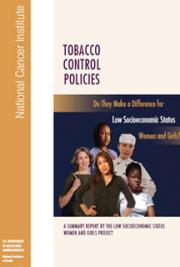REPORT BACK—DIALOGUE ON KEY BARRIERS AND AVENUES FOR CHANGE: INNOVATION, AFFORDABILITY, AND PRACTICABILITY
INTRODUCTION—DR. LaSALLE D. LEFFALL, JR.
The discussion panel leaders were asked to summarize what was said in their panels and add anything else they would like to express based on their experience and expertise.
DISCUSSION PANEL I: BARRIERS TO TRANSLATING RESEARCH INTO REDUCTIONS IN THE BURDEN OF CANCER—DR. MARK CLANTON
Key Points
-
Cancer as a process is little understood by the public. The public understands that there are different kinds of cancers, but few understand that cancer is, in fact, a process that begins at a point of susceptibility. Susceptibility is followed by pre-initiation, the point at which cells begin to change behavior. After pre-initiation comes a malignant transformation of those cells, and in many cases, metastasis to other parts of the body. If the nature of cancer as a process were better understood, the public might think differently about cancer research.
-
Most clinical science has focused on the end of the cancer process, when tumors have already formed. However, clinical scientists have become increasingly interested in earlier phases of the cancer process. Trials are being designed that focus on the susceptibility and pre-initiation phases to test cancer prevention and early detection methods.
-
Cholesterol levels and other biomarkers are routinely used to screen patients at risk for cardiovascular diseases. In the cancer field, biomarker identification and validation is now beginning to represent a critical component of drug discovery, early detection, and the ability to determine whether therapies are working.
-
To improve the understanding of basic scientific questions related to cancer and accelerate drug discovery, the scientific community must improve information sharing among disciplines, especially between the scientific and clinical domains.
-
The term team science has been used to emphasize the need for improved information sharing. The emerging field of systems biology requires teamwork among a variety of specialists, including physicists, mathematicians, engineers, and molecular biologists. Teams of basic scientists and clinicians are needed to accelerate the translation of new knowledge into new diagnostic tools and therapies.
-
Another theme related to information sharing is the importance of translating scientific information into coherent messages to help the public understand the cancer process and assess cancer risk.
-
Efforts should be made to increase clinical research focused on early stages in the cancer process to accelerate development of chemopreventive agents and molecular imaging techniques. The regulatory structure that guides the clinical trial process must be reengineered to encourage the creation of trials across the spectrum of the cancer process. Some potentially useful agents and therapies are not investigated because they are not addressed by existing regulations and do not fit existing business models. The current clinical trials system also fails to support bringing together agents developed by different companies.
-
The Centers for Medicare and Medicaid Services (CMS) needs increased access to data on the costs of cancer care to allow the agency to make better decisions in the reimbursement process. A dialogue is ongoing among CMS, researchers, and oncologists to address these issues.
-
CMS is mandated to pay for off-label use of drugs listed in a compendium published by the Food and Drug Administration (FDA). NCI and CMS are working together to determine how to pay for off-label therapies not listed in an FDA compendium.
DISCUSSION PANEL II: THE ROLE OF ACADEMIC MEDICAL CENTERS IN TRANSLATING RESEARCH INTO CLINICAL PRACTICE—DR. MICHAEL CALIGIURI
Key Points
-
The mission of an academic medical center is to translate scientific discoveries into clinical applications and then to scientifically study the outcomes of those applications, providing evidence necessary to implement changes in health care delivery.
-
There are insufficient targeted resources to support translational research, and there is a shortage of investigators who are qualified to conduct this kind of research.
-
The culture that currently exists in many academic medical centers hinders collaboration between the clinic and the laboratory, favoring departmental versus interdisciplinary programs. There is poor communication among scientists, physicians, administrators, and patients. More emphasis is placed on trying to achieve breakthroughs, which are rare, than on the less glamorous process of making incremental advances.
-
Minorities are underrepresented in cancer research performed at academic medical centers, both as investigators and as patients.
-
Costs are a serious problem for academic medical centers because third-party payers are reluctant to provide reimbursement for anything other than standard care. If the public and organizations that pay for health care could be sold on the value of translational research, this type of research would be recognized as providing a competitive advantage for academic medical centers in recruiting physicians and patients.
-
Potential solutions to these barriers include:
-
Encouraging funding agencies to support grants with multiple principal investigators.
-
Providing supplemental funding for Comprehensive Cancer Centers to support collaborations with academic medical centers.
-
Creating a stable, nurturing environment to ensure rewarding employment in academic medical centers for M.D. and Ph.D. candidates who complete training in an oncology-based discipline.
-
Recruiting minority investigators into M.D. and Ph.D. training programs and clinical fellowships.
-
Removing disincentives, such as wasted time and lost compensation, that too-often occur when physicians in academic medical centers refer patients to clinical trials.
-
Adopting electronic medical records and standardized bioinformatics.
-
Increasing the number of clinical trials focusing on cancer prevention.
-
Increasing incentives for pharmaceutical companies to partner with academic medical centers in conducting treatment trials.
-
Increasing NCI involvement in the drug development process.
DISCUSSION PANEL III: BEST MECHANISMS FOR MOVING RESEARCH INTO COMMUNITIES—DR. ROBERT L. COMIS
Key Points
-
The recently passed Medicare Modernization Act will have a great impact on the ability to maintain publicly funded clinical trials. Currently, practitioners are reimbursed for about $2,000 of the costs for each patient, which is from one-third to half of the total cost. On January 1, 2005, there will be an estimated 15 percent reduction in that reimbursement level.
-
The advocacy community must remain a strong partner in the effort to maintain and increase the availability and quality of clinical trials and promote awareness of the importance of clinical research. Examples of progress in this area include recent campaigns by the National Coalition for Cancer Survivorship (NCCS) and Bristol-Myers Squibb’s Tour of Hope.
-
Doctors should be prepared to discuss clinical trials with patients at first contact to provide a consistent message about the benefits of participation. Awareness of the importance of clinical research should be integrated throughout the entire health care system, from academic centers to community-based practices, and doctors must be educated on how to participate in trials.
-
Little is being done in an organized way to ensure that therapeutics proven effective through clinical trials are implemented in the delivery of care to the public.
-
Bioinformatics is a critical area. The caBIG program should be quickly expanded beyond Cancer Centers to include the whole clinical trials enterprise, including CCOPs and Cooperative Groups.
-
Clinical trials should be an integral part of the cancer community’s efforts to eliminate cancer-related health disparities.
-
To involve communities in joint planning of clinical trials, researchers will have to make the benefits of involvement clear. Those benefits must be sustainable when federally funded research projects come to an end.
-
Incentives required to ensure successful participation in clinical research should not be limited to financial compensation. Researchers also need to gain professional recognition for themselves and their practices. Other requirements for successful participation are stable resources and access to adequate numbers of studies to which patients can be referred.
-
Mentorship in conducting clinical trials should be provided in medical education.
-
It is important to begin educating the public about cancer, research, and trials at a very early age—as early as elementary school.
DISCUSSION
-
The public does not understand the language used by scientists, and many scientists do not understand the language used by those working in different disciplines. Government, academia, industry, and other stakeholders must agree to use a common language in addressing the complex problems related to cancer. In addition, medical records and data collected through clinical trials should be stored in a standardized way to ensure their usefulness across geographic borders and among various specialties.
-
Incentives for change are needed. This would include encouraging medical students to pursue careers in academic medical centers, residents to pursue academic careers in primary care, and research fellows to remain in academia following their fellowships. Incentives are also needed to encourage physicians to refer patients to clinical trials, encourage industry to engage in prevention and orphan-drug research, and academic medical centers to engage in partnerships.
-
The cancer clinical research program in the United States is a delicate medical ecosystem of community-based doctors, academic doctors, patients, and other components. Decisions made about any aspect of this system can have tremendous downstream effects on the research infrastructure in both academia and clinical practice.
-
The departmental organization of academic medical centers should be maintained because it fosters rewarding research opportunities. However, the concept of a multidisciplinary research center should be fostered by institutional leadership. Many opportunities for multidisciplinary research are lost because institutions cannot reach a decision on how indirect costs will be allocated.
-
Although the status of biomarker development in general continues to be debated, many believe that a biomarker for ovarian cancer may be available soon. This would be a significant advance in addressing a disease that has been very difficult to diagnose.
-
In its recommendations following this series of meetings, the Panel should identify actions that can be taken immediately and actions that will require further deliberation and possible legislative action. Short-term actions could focus on addressing issues related to distribution of direct costs, reimbursement for physicians’ time spent on enrolling patients into clinical trials, review of how regulations related to electronic records are implemented, provision of guidelines to industry on endpoints for treatment and prevention studies, and encouragement of ongoing dialogue concerning data sharing.
-
The NCI has been replaced by the pharmaceutical industry as the leader in drug development. Barriers to involvement of the private sector in the design of the clinical trials system must be addressed and reduced. Cooperation would benefit the public sector, industry, and academia. Each stakeholder’s interests should be acknowledged and addressed; if it appears that only one stakeholder will benefit, partnerships will not succeed.
-
Currently, no pharmaceutical companies are making only limited investment in cancer prevention agents. The Federal Government needs to dedicate increased resources to development in this area and deal with the intellectual property issues as they come up.
-
Examples of the need to reengineer the clinical trials system include the lack of incentives to address smoking reduction and weight control. There are none because the opportunities for profit do not yet exist.
CLOSING REMARKS—DR. KRIPKE, MR. ARMSTRONG, AND DRS. WILSON AND LEFFALL
-
Dr. Kripke identified two issues that the Panel should consider for future discussion. The first is the lack of an appropriate funding mechanism to support clinical trials designed to demonstrate the commercial potential of newly developed agents and therapies. The second is the inherent tension between efforts to reduce the burden of cancer at the population level and efforts to reduce the burden for individual patients and their families.
-
Mr. Armstrong noted that language and communication obstacle to collaboration among scientists and other stakeholders, as well as lack of state-of-the-art data systems, present a serious obstacle to progress against cancer.
-
Dr. Wilson stressed the importance of helping the public understand the aims of cancer research and the cancer process itself. Important questions regarding efforts to reduce obesity and promote healthy behaviors include determining which generation should be targeted and what institutions or organizations will be responsible.
-
Dr. Leffall stressed that discussions about cancer research should not lose their focus on cancer patients. He noted that quality of life is important to cancer patients and survivors. The ultimate goal of translating research into applications is not only to reduce the societal burden of cancer, but also to maintain quality of life.
CERTIFICATION OF MEETING SUMMARY
I certify that this summary of the President’s Cancer Panel meeting, Translating Research to Reduce the Burden of Cancer, held September 27, 2004, is accurate and complete.









